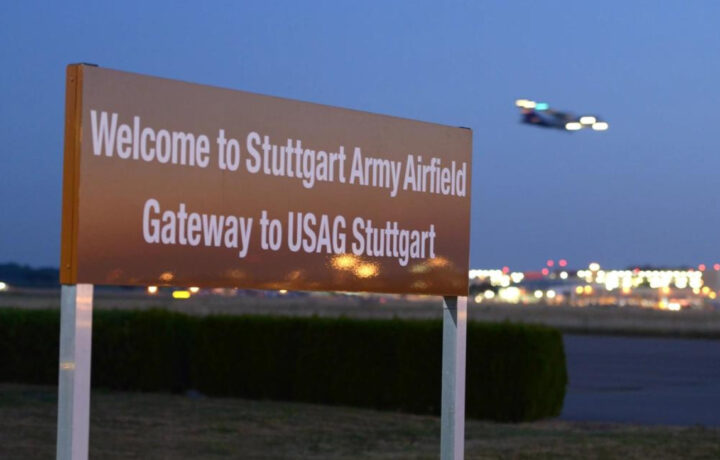On Sunday, several United States military bases across Europe were put on a heightened state of alert due to an undisclosed terror threat. The facilities had their force protection raised to its second-highest state. That included the U.S. Army garrison in Stuttgart, Germany, the headquarters for the U.S. European Command (USEUCOM), which issued a community-wide alert level to Force Protection Condition (FPCON) “Charlie.”
“As part of that effort, we often times take additional steps to ensure the safety of our service members,” USEUCOM said in a statement to the media. “As always, USEUCOM advises personnel in the European theater to remain vigilant and stay alert at all times, including reporting suspicious activity, monitoring Department of State travel advisories, and implementing prudent personal risk mitigation measures.”
The status alert was meant to ensure readiness and rapid response capabilities to potential threats.
According to the Defense Logistics Agency, “Once a FPCON level is set, security and emergency services officials apply, execute and monitor a series of mandatory protective measures for effectiveness. These measures can be as simple as 100% identification checks at the installation gates to increasing stand-off distances from occupied buildings.”
Understanding the States of Alert
The U.S. military’s force protection levels consist of Normal, Alpha, Bravo, Charlie, and Delta, with the latter being the highest state of alert. It should be stressed that even “Normal” doesn’t mean that the guard is let down entirely.
FPCON Normal applies when a global threat of possible terrorist activity exists, and that still warrants a routine security posture. FPCON Alpha occurs when there is an “increased general threat of possible terrorist actively against personnel or facilities.” However, the nature and extent of the threat are also considered unpredictable.
When there is an increase or more predictable threat of terrorist activity, the protection level is raised to FPCON Bravo.
The current FPCON Charlie applies when “an incident occurs or intelligence is received indicating some form of terrorist action or targeting against personnel or facilities is likely.” A 100% ID Card Check is required. In addition, FPCON Charlie requires several changes in a base’s everyday operations, including a suspension of “nonessential activities” that include the closing of the barbershop and some food services.
FPCON Charlie further requires the “curtailment plans for nonessential personnel.”
FPCON Bravo is the New Norm
A pair of U.S. officials who spoke to CNN on Sunday said they haven’t seen this threat level in at least the past decade, and added that it may mean the military has received an “active-reliable threat,” it should be noted that since the September 11, 2001, terrorist attacks, FPCON Bravo has been implemented widely as a preventive measure to enhance security and preparedness across all Department of Defense (DoD) facilities.
Some experts have warned that a prolonged level of enhanced alertness can, however, actually serve to result in lax security as it is impossible to retain a constant state of vigilance. That could explain why the heightened security came, perhaps to “shake things up” – especially with the Paris Olympic Games just a few weeks away. France had already raised its national security alert system to the highest level in March, as it prepared for the games that will draw athletes and spectators from around the globe.
“French authorities actively monitor terrorist threats from organized groups and radicalized individuals,” the U.S embassy in France reported. “Attacks may happen with little or no warning, targeting tourist locations, major sporting and cultural events, and other public areas that attract large numbers of civilians.”
It should be noted that Russia ignored terrorist warnings before the ISIS-K terrorist attack on a concert venue this past March. The U.S. and other Western nations had alerted Moscow of the increased likelihood that ISIS-K was planning a terrorist operation. In addition, Iran had also tipped off Russia, but the warnings went largely unheeded.
On March 22, gunmen opened fire with automatic weapons on concertgoers in what was the deadliest attack inside Russia in 20 years. Nearly 150 people were killed. Moscow was distrustful of the U.S. warnings and played down the intelligence, but it remains an answered question why similar intelligence from Tehran was also ignored.
In the weeks following that attack in Russia, reports have circulated that ISIS and its splinter groups could be planning a major operation in Europe.



